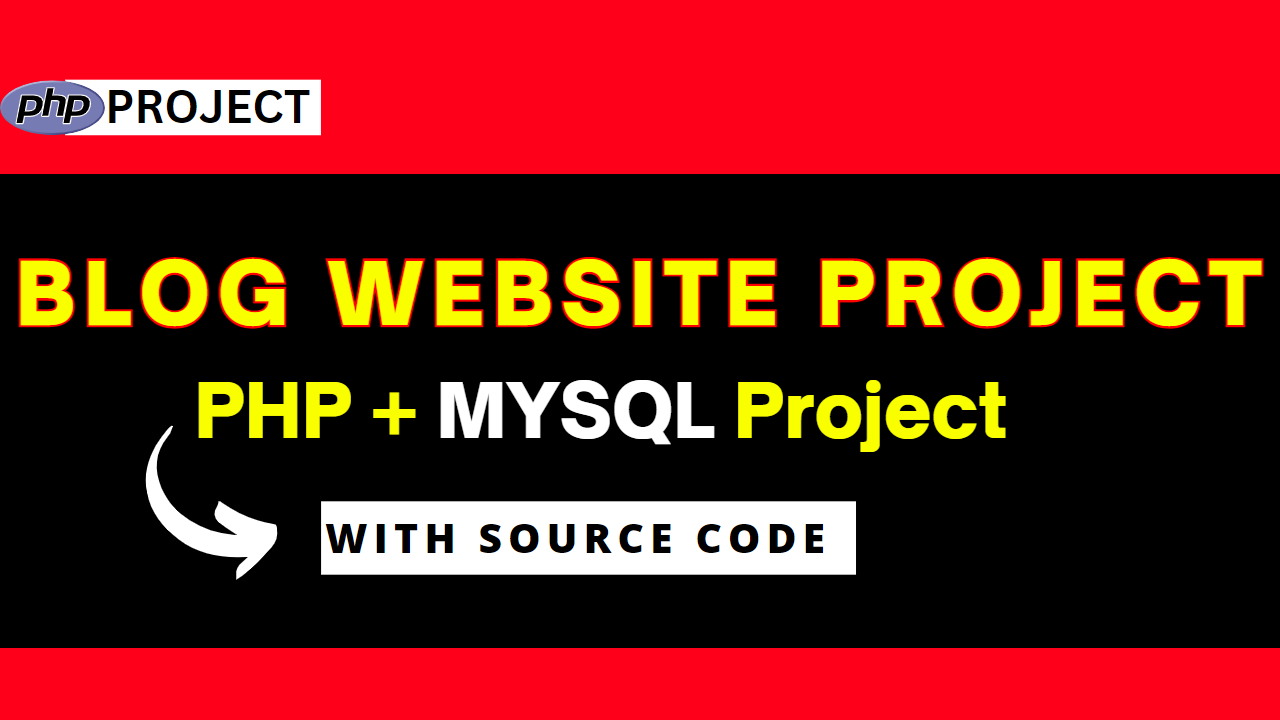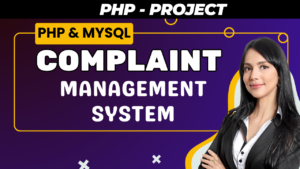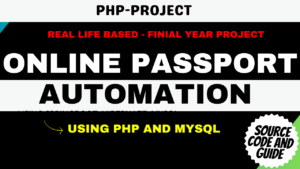Blog Site In PHP With Source Code in PHP And MYSQL || PHP project
Blog Site In PHP , PHP, CSS, and JavaScript is used to create the eBlog web project. When it comes to the project, it includes a lot of features. A user can publish news, blogs, and images. This project is a complete blogging platform for users, with many categories organized for them. It has a homepage where visitors can check the current news, and the programs and events navigation bar keeps viewers up to speed on future programs. Users may simply access all of their news and blogs through a distinct tab for the blog section. The viewers can leave comments using their Facebook accounts, and a contribution page has been created up for those who want to donate money.
Document and Reports
This document file contains a project Synopsis, Reports, and various diagrams. Also, the abstract pdf file is inside the zip and you can modify it accordingly. Documents and Reports take 2-3 days to create as per the user

Don’t forget to Subscribe to our YouTube Channel For More Free Projects
Click Here To Subscribe
Project Information
Front end: HTML, CSS, JavaScript
-
- Tools and Technologies
-
- Front-End: Html, CSS, JS.
-
- Server-side: PHP
-
- Back-end: MYSQL, .
Back end: MySQL
-
- Mysql – Database is MySQL in the backend to keep user data
-
- Database: Mysql
-
- MySQL: MySql is a database, widely used for accessing querying, updating, and managing data in databases
-
- Database used
-
- MySQL
REQUIREMENTS
-
- LAMP/WAMP/MAMP/XAMPP.
-
- Apache
-
- Code Editor.
-
- Anydesk Software
We have more Java Projects which are available with source code and documentation such as project reports as well as PPT for the showcase. Most of these Java projects are cheap or open source, which you can download and use easily by importing into Eclipse or net beans. If you want another project or want to develop a new project according to your requirement or 𝙸𝚏 𝚢𝚘𝚞 𝚏𝚊𝚌𝚎 𝚊𝚗𝚢 𝚙𝚛𝚘𝚋𝚕𝚎𝚖 𝚠𝚑𝚒𝚕𝚎 𝚛𝚞𝚗𝚗𝚒𝚗𝚐 𝙿𝚛𝚘𝚓𝚎𝚌𝚝𝚜 Just Click here
Features of the Project
Modules of blog site in PHP
-
- Admin Module– This module will allow Admin to log in and log out of the system and manage the system and its functions.
-
- User Module: This module will allow the user to manage all the operations related to the user like user name, contact details, purchase and payment history, etc.
-
- Category: In this module, Books can be categorized by Admin accordingly.
User Roles of Blog website in PHP
Two users can interact with this application 1) Admin 2) User
Admin:
- Admin Panel
- News update
- Gallery
- Post News, Blogs
- Add Excos
- Create New Events
- Insert Photos into the gallery, slider
- Edit Welcome Message, About, and Programmes page
- Edit Site Settings
- Add, Delete, View Admins
Installation Steps
1. Download the zip file and Unzip the file on your local server.
2. Put this file inside “c:/xampp/htdocs/”
3. Database Configuration
4. Open PHPMyAdmin
5. Create a Database named phpdb
6.Import database phpdb.sql from the downloaded folder(inside the database)
7. Open Your browser and put inside “http://localhost/Project Folder Name/“
Download Project
Contact to get the Source Code
Email: rishabhsaini0204@gmail.com
WhatsApp: +91 7983434684
Note: Don’t hesitate to get in touch with us if you need the source code. We will supply complete source code and all necessary items such as database and project reports with all diagrams. In addition, we will guide you through a STEP-BY-STEP configuration instruction to assist you in the configuration process.
If you find any difficulties during the configuration, we will provide a complete project configuration guide remotely using any Desk or Zoom.




